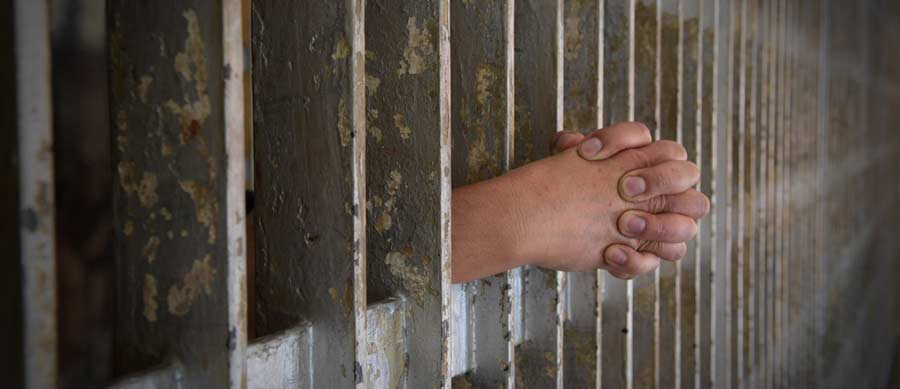Last Updated on August 27, 2025
Texas Governor Greg Abbott signed the Sandra Bland Act into law back in June and it went into effect on September 1, 2017. The law requires jailers to make an immediate determination on the mental health status of an inmate, and divert those who have a mental illness or substance abuse problem to a treatment facility instead of jail.1
Improving Substance Abuse and Mental Illness Treatment for Former Inmates
One senior lecturer at the University of Texas School of Law and UT Lyndon B. Johnson School of Public Affairs stated that the new law has the potential to improve the care of individuals with mental illnesses and substance abuse issues in Texas jails, as well as increase the safety of all inmates.2
This new state law was named after a woman who was arrested, jailed, and later committed suicide. It was only revealed later that she suffered from a history of mental illness. Some individuals say if Bland had been evaluated and sent to a mental health facility instead of jail, she may still be alive. Occurrences like this raise questions about the need for appropriate care within the criminal justice system.
Substance Abuse and Mental Illness
Individuals often experience substance abuse and mental illness simultaneously, and although it’s not always clear which one came first, the two are closely related. The presence of a mental disorder and a substance abuse disorder is called a coexisting condition and the two are closely related.
According to the Substance Abuse and Mental Health Services Administration’s (SAMHSA’S) 2014 National Survey on Drug Use and Health, an estimated 7.9 people had both a mental disorder and substance use disorder.3 And in state prisons, 73 percent of women and 55 percent of men have at least one mental health problem.4
Substance abuse and mental disorders may coexist in these environments because they share many risk factors, including5:
- Experiencing traumatic events in childhood or adolescence
- Poverty
- Witnessing violence or sexual abuse within the home
- Lack of parental stability
- Family history of addiction or mental illness
In many instances, men and women will resort to drugs and alcohol to numb feelings of anxiety, pain, or fear. Additionally, some will use drugs to cope with the symptoms of the mental illness they may or may not know they have.
But how do these individuals end up in jail? Some men and women will turn to property crime, prostitution, or other illegal activities to pay for their addiction. These crimes frequently escalate into violent offenses and they wind up in jail, with no access to a drug and alcohol rehab treatment program for their mental health problems or substance abuse problems.
Treating Coexisting Conditions Among Current Jail Inmates
The Sandra Bland Act directly addresses one of the major problems within the criminal justice system. Currently, there is a lack of protocol for the proper screening and assessing of incarcerated individuals to determine whether or not they need treatment for a mental health or substance abuse problem.
According to SAMHSA, an effective screening process within the criminal justice system should include the following components6:
- Entry points should require routine screenings for incarcerated individuals
- Standardized instruments should be used to determine if an individual needs to return for a follow-up assessment
- Facilities should have trained staff to implement and manage the screening process
- Staff should have a planned and appropriate response for incarcerated individuals who are experiencing a behavioral health crisis
- Accurate healthcare records should be kept by the agency performing the screenings
The Importance of Integrated Treatment for Coexisting Conditions
Research shows that integrated treatment is an effective approach to treating clients who suffer from substance abuse problems and disorders such as depression and anxiety.7 Therefore, individuals suffering from coexisting conditions (including those who are incarcerated) should be treated with an integrated approach that addresses both the substance abuse and the mental disorder(s).
The main benefits of integrated drug and alcohol rehab programs are that they are associated with lower costs and better outcomes.8 These outcomes may include:
- Higher quality of life
- Improved functioning
- Reduced substance abuse
- Decreased hospitalization and arrests
Integrated treatment within an alcohol and drug rehab center should involve integrated medications for both mental health problems and substance abuse issues (when applicable) and use an appropriate blend of behavioral therapies.
Laws such as the recently implemented Sandra Bland Act are stirring more discussion about the need for substance abuse and mental health problems within the criminal justice system. This particular piece of legislation may help to improve access to rehab centers for this type of treatment and subsequently protect incarcerated individuals from the dangerous consequences of their own behavioral health crises or those of others.
Receiving Drug Rehab After Jail
Regardless of this new law in Texas, those who have already been released from jail may not have ever received the addiction treatment and recovery services they needed to overcome their addiction. If you’re searching for a drug and alcohol rehab program that will help you overcome your addictive behaviors and lead a life free from substance abuse, Nova Recovery Center may be able to help. Please contact our admissions team today to learn more.
